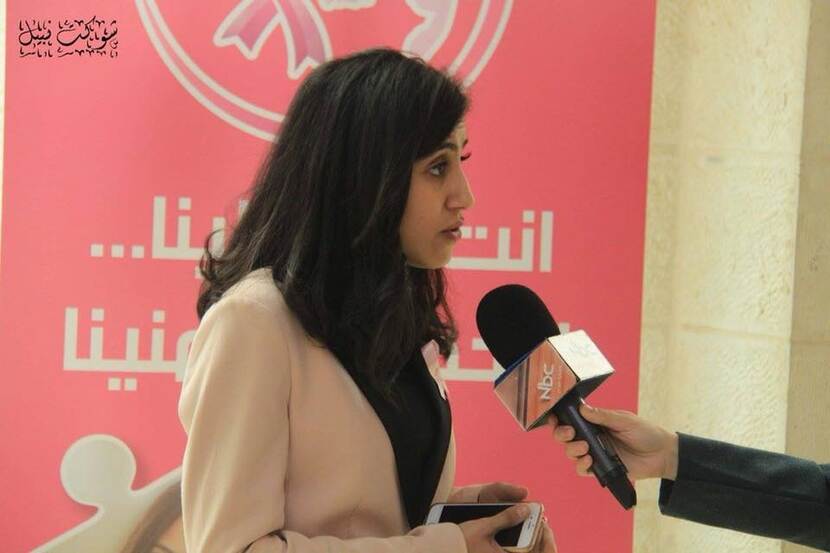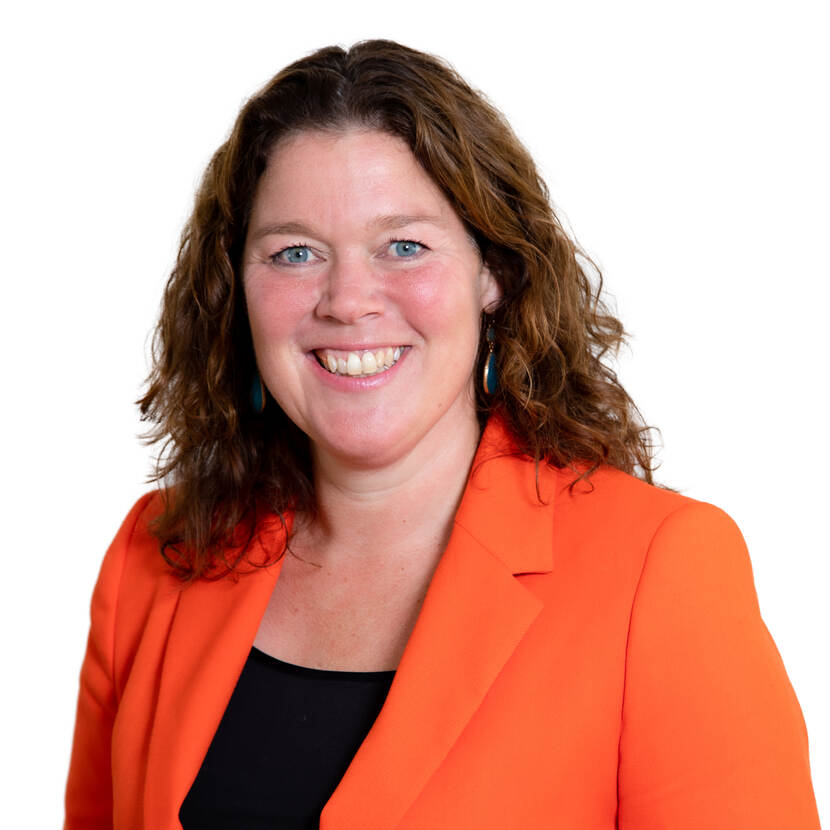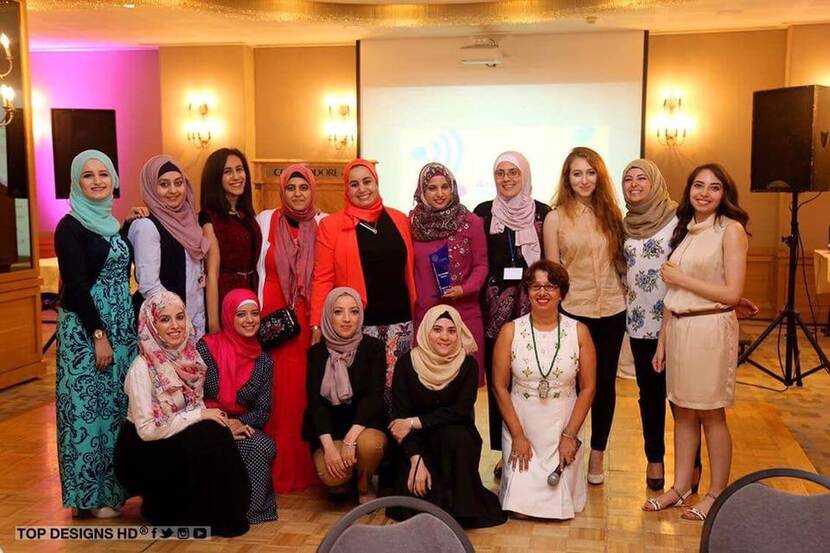Building an international network to help women leaders advance
‘In the Palestinian Territories more women than men study information and communication technology, but after graduation women are three times less likely to find employment in this field,’ says Mona Demaidi, who owns a tech company. This is an issue that she and 11 other women leaders from the Middle East and North Africa have been brainstorming about as part of the Ministry of Foreign Affairs’ Women Leadership Programme.

‘Empowering women pays off,’ says Pascalle Grotenhuis, Dutch ambassador for women’s rights and gender equality. ‘Only 6% of those involved in peace talks are women, yet research shows that when women are involved in negotiations the chance of reaching a peaceful solution increases.’ Pascalle believes the world would be better off if there were more women at the top. ‘Not just in terms of world peace, but in terms of the global economy as well. Which is why the Ministry of Foreign Affairs is investing in women political leaders and in businesswomen.’

Women Leadership Programme
In total, 12 women from the Middle East and North Africa (MENA) are participating in the Women Leadership Programme. ‘Over the course of the week we’ve been getting to know each other virtually. Hopefully next year the women will be able to come to the Netherlands and we can hold the sessions and workshops in person. By sharing our experiences we learn from each other. That includes me. In the Netherlands men still earn more than women for the same work; there’s a 20% wage gap,’ say Pascalle. Yet there are other countries, she’s learned, where legislation is in place to close the gap, so it’s much less of an issue.
Mona Demaidi, who is from the Palestinian Territories, finds it valuable to talk with other women about women leadership. ‘We may be from different countries, but women everywhere face the same challenges,’ she says. Mona owns a tech company, is a women’s rights activist and teaches at An-Najah National University in Nablus. She finds it shocking that more women than men study computer science and computer engineering, but that ‘after graduation women are three times less likely to find employment in this field. Few women work for tech companies at all, and certainly not in managerial positions.’
Lack of self-confidence
Mona sees two main reasons why so few Palestinian women find paid work in ICT. ‘First, they lack self-confidence. Even when women have all the necessary credentials, they are more inclined than men to doubt they’re qualified for a job.’ That’s why Mona believes that women’s networks such as Arab Women in Computing are so important. ‘Women role models show that you don’t need to know everything to be successful, you can start as you are and learn as you go.’ But for Mona having role models is not enough. She wants to get women actively involved through mentoring programmes. And to get companies interested in hiring female employees, Mona invites them to participate in the events organised by women’s networks.
International network
In addition, Mona organises conferences in many countries in the MENA region, which women from Europe are also welcome to attend. ‘In 2018 we organised a conference in Beirut, in Lebanon,’ she says. ‘But fewer people registered than we’d hoped.’ This touches on the second reason women are underrepresented on the labour market: culture. ‘When given the opportunity to attend an international conference or receive training abroad, 90% of women won’t take it. They’ve never been abroad and aren’t used to travelling.’ Mona wants to change this by building an international network of and for women. ‘A reputable network where women feel safe. If we share our experiences, talk about our fears and discuss the skills we need to succeed, we can help each other make progress.’ The following conference Mona organised, which was held in Morocco, attracted more participants. Mona is confident that many women in the MENA region are curious and eager to gain new experience.
Opportunities created by the pandemic
Although qualified women can be found throughout the Palestinian Territories, most ICT companies are based in Ramallah and Nablus. ‘Women’s reluctance to relocate to another city for work has always been an obstacle,’ explains Mona. ‘Thanks to the pandemic, working from home has become more commonplace. That’s been a boon for women wishing to enter the workforce, and the percentage of female workers has risen.’ This opportunity has been a silver lining in these challenging times. And Mona sees another reason for optimism: ‘the mentality of the business community is changing, and tech companies in the Palestinian Territories are increasingly open to hiring women.’
